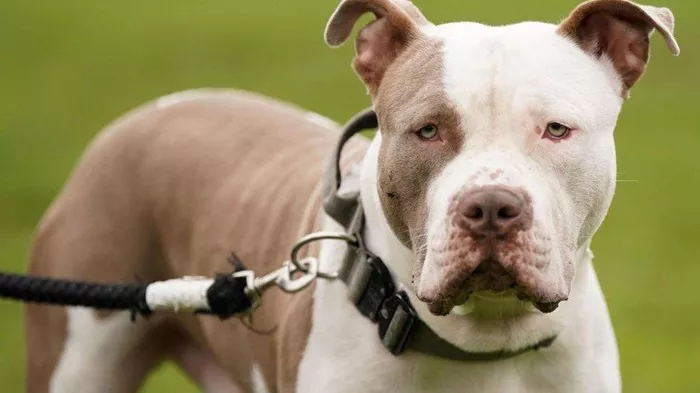November 7, 2024, marks National Canine Lymphoma Awareness Day, an important occasion dedicated to raising awareness about canine lymphoma, an aggressive cancer that affects many dogs. This observance brings together dog lovers and advocates worldwide to highlight the significance of early detection and treatment. Here, we explore the history of this day, its importance, and the proactive steps we can take to protect our furry companions.
The Birth of National Canine Lymphoma Awareness Day
Initiated in 2015, National Canine Lymphoma Awareness Day was inspired by the personal journey of Terry Simons, an agility dog trainer who tragically lost his dog, Reveille, to lymphoma in 2011. This loss spurred Simons to establish the Canine Lymphoma Education Awareness and Research (CLEAR) Foundation, dedicated to educating pet owners and advancing research into this serious disease.
Veterinary oncologist Dr. Sarah Thompson underscores the day’s significance: “National Canine Lymphoma Awareness Day serves as a vital reminder for pet owners to be alert to their dogs’ health. Early detection can dramatically improve treatment outcomes, and this observance spreads that essential message.”
Understanding Canine Lymphoma: A Silent Threat
Canine lymphoma represents a serious threat to pet health, affecting dogs of all breeds and ages. This cancer impacts the lymphatic system, often progressing without noticeable symptoms until it has advanced significantly. Its stealthy nature makes early detection crucial.
Research published in Veterinary Quarterly highlights the alarming prevalence of this disease, stating that “between 20 and 100 out of every 100,000 dogs diagnosed with abnormal cells have lymphoma, making it one of the most common types of cancer in dogs.” Such statistics highlight the necessity for awareness and regular veterinary check-ups.
Recognizing Symptoms: A Guide for Pet Owners
Being vigilant about the signs of canine lymphoma can be critical to your dog’s health. Key symptoms to watch for include:
- Swollen lymph nodes
- Unexplained weight loss
- Lethargy or reduced energy levels
- Loss of appetite
Veterinary specialist Dr. Emily Chen advises, “Any changes in your dog’s behavior or health should prompt a visit to the veterinarian. When it comes to lymphoma, timely intervention is essential.”
The Importance of Early Detection
Catching canine lymphoma in its early stages significantly increases the chances of effective treatment. Regular veterinary check-ups and prompt attention to unusual symptoms are vital. Advances in genomic testing now enable the identification of cancer markers even before symptoms manifest.
Mike, a California dog owner, shares his experience: “When we noticed that Charlie seemed off, we immediately took him to the vet. Thanks to the awareness from National Canine Lymphoma Awareness Day, the early diagnosis allowed Charlie to receive timely treatment, and now he’s thriving.”
Innovations in Treatment: Hope on the Horizon
The treatment landscape for canine lymphoma is rapidly evolving. From traditional chemotherapy to groundbreaking immunotherapies, the options available to combat this disease are expanding, improving not only survival rates but also the quality of life for affected dogs.
Veterinary researcher Dr. Rachel Green notes exciting developments: “Promising results are emerging from targeted therapies designed to attack cancer cells while preserving healthy tissue. This could transform how we treat canine lymphoma, leading to more effective and less invasive options.”
The Strength of Community Support
National Canine Lymphoma Awareness Day has cultivated a strong community of support, uniting pet owners, veterinarians, and researchers. This day serves as a rallying point to share experiences, provide support, and fund critical research initiatives.
Social media campaigns, using dedicated hashtags, have connected individuals and facilitated the sharing of personal stories, creating a collective narrative of struggle, hope, and resilience.
Taking Action: How You Can Help
Everyone can play a role in making a difference on National Canine Lymphoma Awareness Day. Consider the following actions:
- Educate yourself and others about canine lymphoma.
- Participate in or organize fundraising efforts.
- Share your personal story or support others through social media.
- Schedule a veterinary check-up for your dog.
Awareness is like a ripple effect—one small action can inspire widespread change.
A Global Movement: Spanning Borders
Though National Canine Lymphoma Awareness Day began in the United States, its message resonates across the globe. Like World Civil Defence Day, which unites communities for a common cause, this observance promotes canine health internationally.
Veterinarians worldwide are adapting the observance to their local contexts, enhancing awareness and improving canine healthcare practices. This global approach highlights our interconnectedness and shared compassion for animals.
Looking Ahead: The Path Forward
As we approach future observances of National Canine Lymphoma Awareness Day, optimism and determination abound. Ongoing research, heightened awareness, and community support serve as guiding lights toward better outcomes for our dogs.
Dr. Thompson emphasizes, “With increasing engagement each year, our focus is not solely on finding a cure, but also on enhancing the quality of life, extending lifespans, and supporting pet owners through their journeys. The future for canine health is bright.”
Conclusion: A Unified Effort
National Canine Lymphoma Awareness Day transcends being just a date on the calendar; it embodies a movement committed to the health and well-being of our canine companions. As we observe this day on November 7, 2024, let us remember that every effort counts. Whether through scheduling veterinary appointments, disseminating information, or funding research, we each have the potential to make a difference.
Our dogs provide us with unwavering love and companionship. On this day—and every day—let’s honor that love by being informed, proactive, and vigilant regarding their health. Together, we can work toward a future where canine lymphoma is no longer a daunting diagnosis but a manageable condition. Let us transform awareness into action and hope into a reality for our cherished canine friends.
Related topics:
Guide Dog Puppies Explore Spooky Attractions Ahead of Halloween
How Dog Noses Develop Their Unique Patterns
The Great Ocean Road Chocolaterie Hosts First Dog Lovers Day


